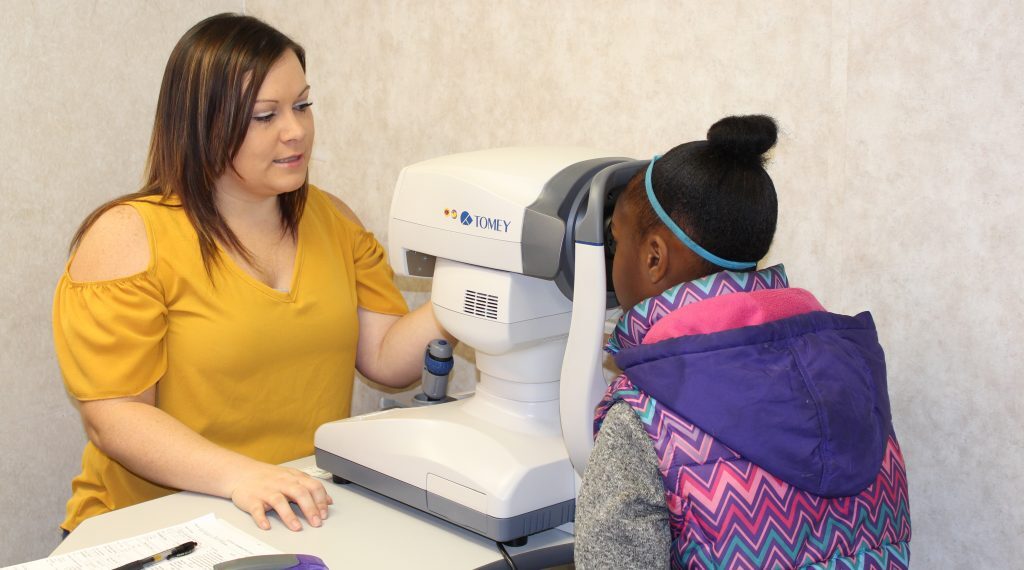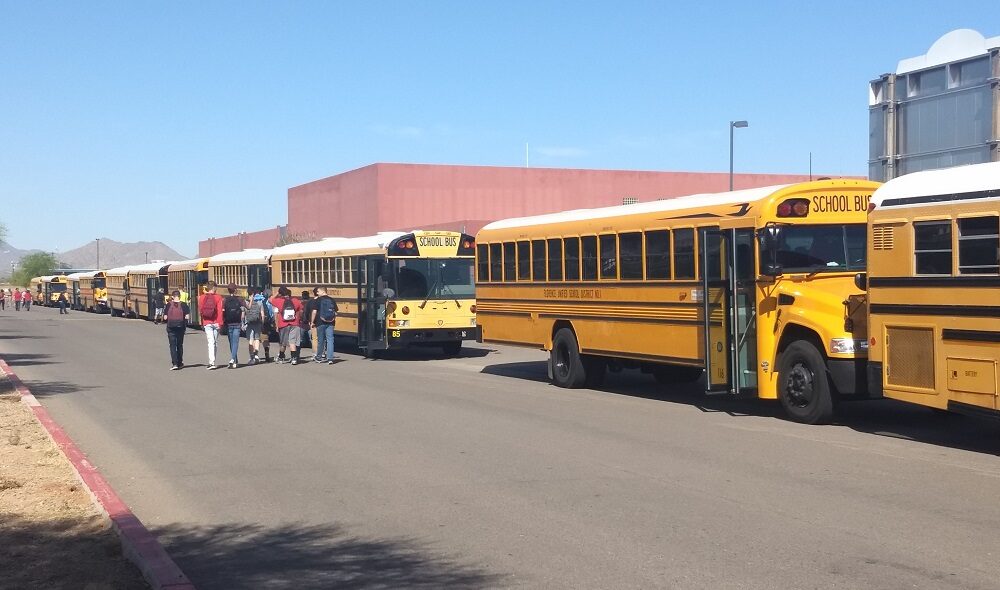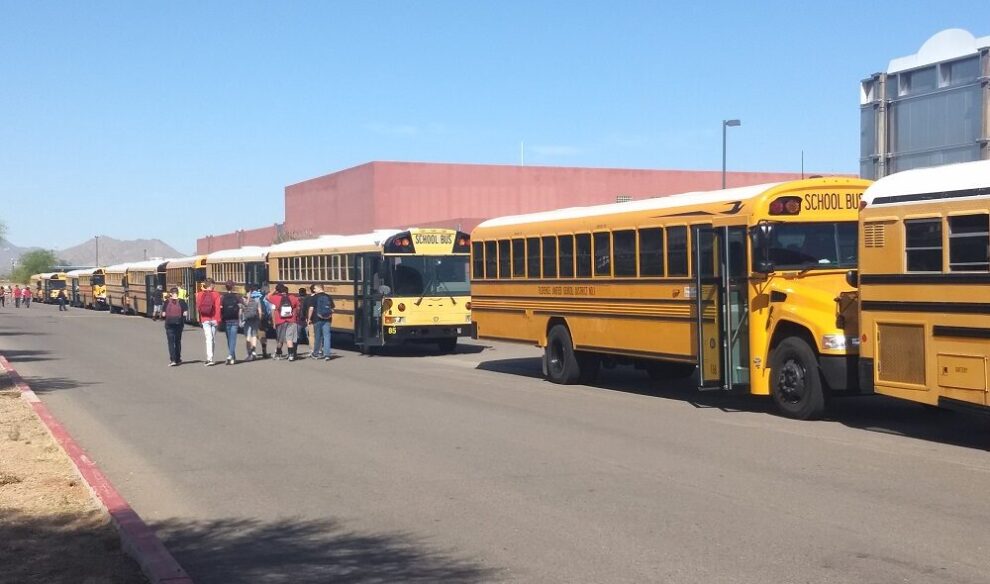What do lawmakers’ bills to require students be tested for dyslexia and receive school vision and hearing screenings have in common?
They’re unfunded mandates, which means there are no funding sources in these bills to provide the services they require.
“It could be the best mandate in the whole world, and it doesn’t change the fact that if it’s not funded, then districts have to take money away from programs and services that students are already getting,” said Chuck Essigs, director of governmental relations for Arizona Association of School Business Officials.
Since Arizona remains 48th in the nation in public education spending, unfunded mandates have a significant impact on public schools’ budgets, Essigs said.
The first thing lawmakers should do when they consider a mandate is “determine what it’s going to cost schools to do that, otherwise you’re going to shortchange them, and they’re going to have to take money from something else,” Essigs said.
Arizona’s per-pupil funding remains below what it was before the Great Recession – despite the partial restoration of district additional assistance, the extension of Prop. 301’s six-tenths of a cent sales tax approved by voters in 2000 and voter’s approval of the Prop. 123 inflation funding lawsuit settlement in 2016.
What that means for schools is that “we’re continuing to have to do more with less for the last 10 years,” said Chris Knutsen, superintendent of Florence Unified School District, which serves more than 8,500 students in Pinal County.
Proposed unfunded mandates
Senate Bill 1456, sponsored by Senate Education Committee Chair Sylvia Allen, would require public school nurses, staff members or volunteers to go through training developed by the Arizona Department of Education to provide hearing and vision screening to students.
The bill was passed as amended by the Senate Committee of the Whole on Monday, March 4, 2019, and was given a due pass recommendation during its third reading in the Senate on Tuesday, March 5.
While $100,000 is requested from the state general fund for the Arizona Department of Health Services to purchase vision screening kits, no funds were made available to schools to pay people to provide the screening services.
 A student receives a vision screening at Creighton Elementary School District. Photo courtesy Kayla Pologa/Creighton Elementary School District
A student receives a vision screening at Creighton Elementary School District. Photo courtesy Kayla Pologa/Creighton Elementary School District
“It’s unknown what the cost in time and resources would be, so we oppose that. It’s a tough one obviously,” said Chris Kotterman, director of governmental relations for Arizona School Boards Association. “One of the things we put forward was to have health care providers come in and do those screenings, because they can do them and get reimbursed for them. School districts can’t.”
Senate Bill 1318, sponsored by Sen. Paul Boyer and co-sponsored by Sen. Sonny Borrelli, would require the Arizona Department of Education to develop a plan to screen students for dyslexia and develop a list of training opportunities to help teachers recognize and implement evidence-based instruction to meet the needs of students with dyslexia.
No funds were provided to schools to do this. The bill was given a due pass recommendation as amended during its third reading in the Senate on Monday, March 4, 2019.
The last day for bills to be heard in their chamber of origin was Feb. 22, 2019, and the last day for bills to be heard in legislative committees is March 29, 2019.
“The form that comes out of the Senate is not something we’ve signed off on, but we have the commitment of the group involved and the sponsor Sen. Boyer to keep working to make it something that would be helpful and not a massive unfunded mandate,” Kotterman said.
“Our proposal is to include dyslexia screening in the Move on When Reading screening system that the Arizona Department of Education is already developing,” Kotterman said.
But Knutsen said there is no need for additional regulations around dyslexia, because a number of existing laws – including the Individuals with Disabilities Education Act (IDEA) and state administrative code – require screening and evaluation for all disabilities including dyslexia.
“These procedures have shown (to be) effective in capturing students who are in need of special education,” Knutsen said.
Knutsen noted that “dyslexia screeners as proposed undermine these processes that are designed to ensure that students are appropriately and not ‘overly’ identified as dyslexic.”
Dyslexia is only one of several learning disabilities that are regulated by federal law, Knutsen said.
“Such unfunded mandates not only put an undue financial burden on local education agencies, but are often harmful to the ability of schools to accurately identify and provide services to those students who truly need it,” Knutsen said.
Impact of unfunded mandates
“We are very happy with what the Governor and the Legislature have done to give teacher raises of 20 percent over the next couple of years; however, the unfunded mandate of Prop. 206 is causing us some problems,” Knutsen said.
Next year, Florence Unified will receive two percent in inflation funding, or about $1.1 million, but increasing wages for classified staff to the new minimum wage required by Prop. 206, will use up $500,000 – almost half of that funding, Knutsen said.
“Pretty soon we’re not going to have any 2 percent (inflation funding) increase, because it’s all going to be eaten up with unfunded mandates,” Knutsen said.
 Florence Unified School District students walk near buses. Photo courtesy Florence Unified School District
Florence Unified School District students walk near buses. Photo courtesy Florence Unified School District
The increases for new classified employees at the bottom of the pay scale have led to morale issues for long-term classified staff who are seeing the newcomers rapidly catch up to them, Knutsen said.
As a result, some Florence Unified bus drivers have sought employment with surrounding districts, Knutsen said.
“We’re trying to figure out a way – hopefully, all these unfunded mandates don’t go through – to give our bus drivers a significant bump with some of that inflation money,” Knutsen said.
“Our bus drivers are the first people that see our kids in the morning, and the last people to see them when they leave our district at night,” Knutsen said. “It’s so important that we find quality bus drivers, but it’s becoming more and more difficult to do so. We need resources.”
When mandates do not have adequate funding, that also causes problems, Essigs said.
For example, the actual costs for school districts to provide special education, which is mandated by law, are $80 million to $100 million more than the funding school districts currently receive, Essigs said.
Senate Bill 1522, sponsored by Sen. Heather Carter, would have established new base funding rates and weights including a $3 million appropriation for an Extraordinary Special Education Needs Fund, but it was not heard in either the Senate Education Committee or Senate Appropriations Committee, according to an article in Arizona Capitol Times.
But House Bill 2670, sponsored by Rep. Shawnna Bolick, which would establish a study committee on special education weights and funding for gifted students was passed as amended Feb. 28, 2019, in its third reading in the House.
“Anytime schools have a mandate, and there’s no additional funding for that mandate or the additional funding is not adequate, then the only place they have to take money out of is the regular education program,” Essigs said.











